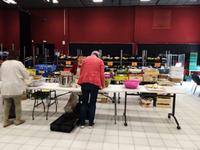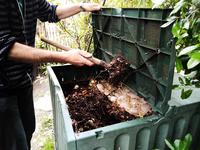
Nantes - Food circularities
In Nantes, grassroots initiatives are central to raise awareness and identify solutions to social and environmental concerns
In the medium-sized town of Nantes, located in western France and home to approximately 300,000 inhabitants, grassroots initiatives have played a pivotal role in raising awareness and addressing social and environmental challenges (Ecopôle, 2014). These citizen-led movements have faced both support and threats, especially since Nantes was named the European Green Capital in 2013. While some initiatives thrived and scaled up, others faded away. This project offers a unique opportunity to explore the evolution of these grassroots environmental actions in Nantes, emphasizing their importance and ensuring their sustainability.
To achieve this, we are focusing on food circularity, a topic that has been underrepresented in transition studies, despite its significant impact on the socio-environmental metabolism of cities. Nantes is already home to numerous food-related initiatives that can be considered innovative practices for sustainability. The recent changes in legal frameworks, coupled with increasing involvement from citizen groups, the public, and private sectors, make it a compelling time to examine this circular approach.
Our study will specifically explore areas such as urban agriculture, food distribution and consumption, organic waste management, resource valorization and reuse, as well as food packaging, transport, and waste prevention initiatives.
Two distinct areas in Nantes will serve as primary research sites:
1. A central, gentrified area marketed as Nantes’ new city center, historically industrial, but still home to a working-class community.
2. A disadvantaged working-class neighborhood located on the city’s outskirts, mostly comprising social housing, currently undergoing urban renewal.
This project is led by a team of four researchers:
• Jean-Baptiste Bahers, a research fellow in geography, specializing in urban metabolism and waste management.
• Mathieu Durand, a senior lecturer in geography and urban planning, with a focus on environmental justice and waste management.
• Cyria Emelianoff, a senior lecturer in geography, specializing in sustainable cities.
• Aline Le Failler, a PhD student in social geography, dedicated full-time to this project.
Operationally, the project is being developed in close collaboration with Ecopôle, a local association dedicated to environmental education and the coordination of environmental stakeholders within the Nantes region.










